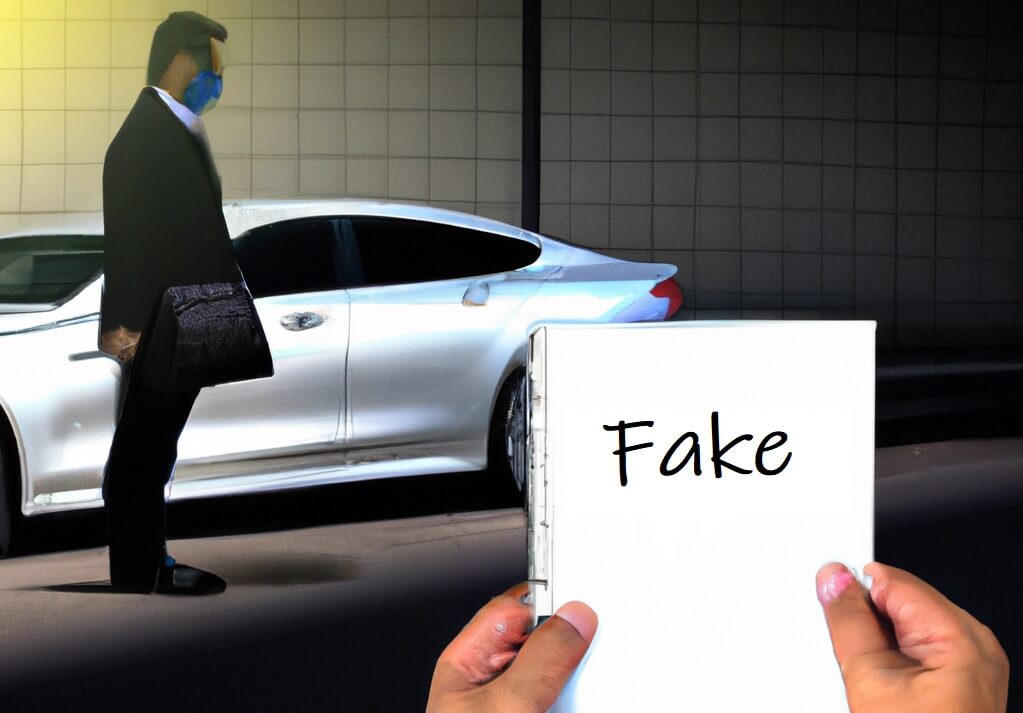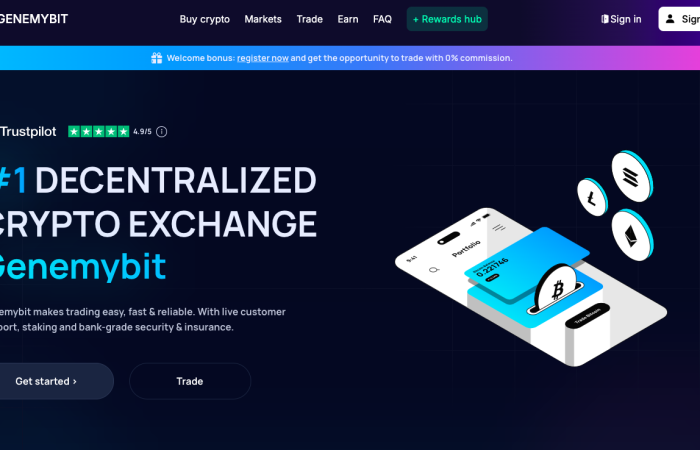Car scams refer to fraudulent activities related to the buying, selling, or renting of automobiles, where scammers deceive and defraud unsuspecting individuals for financial gain. Car scams can take various forms, including fake listings, title fraud, odometer fraud, VIN cloning, and online payment scams, among others.
Car scams are unfortunately prevalent in today’s society, with scammers taking advantage of the anonymity and wide reach of the internet, as well as the complexity of the automobile industry. They target both buyers and sellers, and victims can include individual consumers, dealerships, and even insurance companies.
It’s important to be aware of car scams because they can result in devestating financial losses and legal complications for victims, as well as emotionally distressing.
There are various types of car scams:
- Fake listings: Scammers create fake online listings for vehicles they do not own, usually at attractive prices, to lure in unsuspecting buyers.
- Title fraud: Scammers manipulate vehicle titles to make it appear as if they have clear ownership of a vehicle, when in reality, there may be liens, loans, or other issues associated with the title. For example, in salvage fraud, scammers sell salvaged vehicles without disclosing their salvage title status, misrepresenting the vehicle’s condition and value.
- Odometer fraud: Scammers tamper with or roll back the mileage on a vehicle’s odometer to make it appear as if the vehicle has lower mileage than it actually does, inflating its value.
- VIN cloning: Scammers use stolen or fake Vehicle Identification Numbers (VINs) to create counterfeit vehicles, making them appear legitimate and selling them to unsuspecting buyers.
- Online payment scams: Scammers may request payment for a vehicle through online platforms, but never deliver the vehicle, leaving the buyer with a financial loss.
- Loan scams: Scammers may promise to secure a loan for a vehicle but require upfront fees or personal information, only to disappear without providing any loan or services.
- Overpriced cars: Scammers may list cars for sale at a price that is too good to be true. Once you have contacted them, they will ask you to pay for the car in advance, usually through a wire transfer. Once they have your money, they will disappear and you will never see the car or your money again.
- Sold as-is: Scammers may sell cars that are in poor condition or that have hidden problems. They may not disclose these problems to you until after you have bought the car.
- Lemon laws: Scammers may sell cars that are considered “lemons.” This means that the car has a major defect that cannot be fixed.
These are just some examples of the types of car scams that exist, and scammers are constantly finding new ways to defraud consumers.
Below, you will find descriptions of various types of car scams, along with tips on how to avoid falling victim to them and how to recover your money if you have already been defrauded.

eBay Motors Scams
eBay Motors is an online marketplace that allows individuals to buy and sell vehicles, including cars, motorcycles, boats, and more. While eBay Motors provides a convenient platform for vehicle transactions, it also presents potential risks for scams due to its wide reach and anonymity.
Some common eBay Motors scams include fake listings, where scammers create listings for vehicles they do not actually own, often at unrealistically low prices, to entice unsuspecting buyers.
Payment fraud is another scam, where scammers may request payment through non-secure methods or ask for upfront payments without delivering the vehicle.
Vehicle misrepresentation is also a common scam, where scammers may provide false information or images about the vehicle’s condition, mileage, or title status.
To avoid falling victim to eBay Motors scams, it is important to exercise caution and follow these tips:
- Verify sellers: Check the seller’s feedback, ratings, and reviews on eBay Motors. Look for any red flags, such as negative feedback or complaints from previous buyers. Communicate with the seller and ask questions about the vehicle to gauge their legitimacy.
- Use secure payment methods: Avoid making payments through non-secure methods such as wire transfers or gift cards. Use eBay’s recommended and secure payment methods, such as PayPal or escrow services, which offer buyer protections.
- Research the vehicle: Conduct thorough research on the vehicle’s history, including its title status, mileage, and condition. Request and review the vehicle’s VIN report, and consider using a trusted third-party inspection service to assess the vehicle’s condition.
- Be cautious of unrealistic deals: If a deal seems too good to be true, it may be a scam. Be wary of listings with significantly lower prices than the market value, as they may be fraudulent.
- Trust your instincts: If something feels suspicious or too good to be true, trust your instincts and proceed with caution. Be cautious of high-pressure tactics, urgent requests for payment, or refusal to provide additional information about the vehicle.
- Report suspicious activity: If you come across a suspicious listing or encounter a potential scammer on eBay Motors, report it to eBay immediately to protect yourself and other buyers.
Facebook Car Scams
Facebook has become a popular platform for buying and selling vehicles through its Marketplace feature, as well as through dealership pages. However, it also presents potential risks for car scams due to the lack of verification and anonymity.
Some common car scams on Facebook include fake listings, where scammers create listings for vehicles they do not actually own or do not intend to sell, often at unrealistically low prices, to lure unsuspecting buyers.
Phishing schemes are also prevalent, where scammers may create fake seller profiles or impersonate legitimate sellers to obtain personal information or payment details from buyers.
Payment fraud is another risk, where scammers may request payment through non-secure methods or ask for upfront payments without delivering the vehicle.
One recent example of a car scam on Facebook Marketplace was reported by WSMV News. A woman from Nashville, Tennessee was swindled by a fake seller for at least $1,000 after sending money for a Toyota that never came. The seller claimed that her husband had died and the price was reduced because she was leaving on military duty.
The buyer was asked to send the money through eBay Services, where the car would be shipped in at least three days and the buyer would have five days to inspect the car before the money was released to the seller. However, the seller later requested an additional $1,000 for insurance on the delivery and asked for it to be sent in gift cards.
To stay safe on Facebook when buying or selling a vehicle, it is important to take the following precautions:
- Verify seller profiles: Check the seller’s profile information, including their name, contact information, and history of previous transactions. Look for any red flags, such as incomplete profiles or suspicious activity.
- Avoid wire transfers: Avoid making payments through wire transfers or other non-secure methods, as they offer little to no buyer protections. Use secure payment methods, such as PayPal or other reputable online payment platforms.
- Meet in person for transactions: Whenever possible, meet the seller or buyer in person to inspect the vehicle, exchange payment, and complete the transaction. Avoid remote transactions that do not allow for a physical inspection of the vehicle.
- Research the vehicle: Conduct thorough research on the vehicle’s history, condition, and title status. Request and review the vehicle’s VIN report, and consider using a trusted third-party inspection service to assess the vehicle’s condition.
- Be cautious of suspicious listings: Be wary of listings with unusually low prices, poor quality images, or incomplete information. Scammers often use these tactics to lure in unsuspecting buyers. If a deal seems too good to be true, it may be a scam.
- Trust your instincts: If something feels suspicious or too good to be true, trust your instincts and proceed with caution. Be cautious of high-pressure tactics, urgent requests for payment, or refusal to provide additional information about the vehicle.
- Report suspicious activity: If you come across a suspicious listing or encounter a potential scammer on Facebook, report it to Facebook immediately to protect yourself and other users.
Auto Warranty Scams
Auto warranty scams are a type of scam where scammers contact vehicle owners through unsolicited calls, emails, or mailings claiming to offer extended auto warranties or vehicle service contracts. These scams often involve high-pressure tactics, vague or misleading claims, and requests for payment.
Some warning signs of auto warranty scams include:
- High-pressure tactics: Scammers may use aggressive and persistent tactics to pressure you into purchasing their warranty or service contract, often claiming that the offer is time-limited or that your vehicle is at risk of costly repairs.
- Vague claims: Scammers may make vague or exaggerated claims about the coverage of their warranty or service contract, without providing detailed information about what is covered and what is not.
- Requests for payment upfront: Scammers may request payment upfront, often through wire transfers or other non-secure methods, before providing any written contract or detailed information about the warranty or service contract.
One recent example of an auto warranty scam was reported by the Federal Trade Commission (FTC) in May 2021. The FTC warned consumers about recorded phone messages from scammers posing as representatives of a car dealer, manufacturer or insurer telling them that their auto warranty or insurance is about to expire. The call includes a pitch for renewing the warranty or policy and may instruct the consumer to press a certain number or stay on the line. The scammer may then ask for personal information, which can be used to defraud the consumer.
To avoid falling victim to auto warranty scams, consider the following tips:
- Research companies: Before making any decisions or payments, research the companies offering the warranty or service contract. Look for reviews, ratings, and complaints from reputable sources. Be cautious of companies with a history of complaints or negative reviews.
- Read contracts thoroughly: Carefully read and understand all contracts, terms, and conditions before signing or making any payments. Pay attention to the coverage, exclusions, limitations, and cancellation policies.
- Contact your vehicle manufacturer directly: If you receive an unsolicited call, email, or mailing claiming to be from your vehicle manufacturer or an authorized dealer, contact your vehicle manufacturer directly to verify the legitimacy of the offer. Do not rely solely on the contact information provided by the caller or sender.
- Be cautious of unsolicited offers: Be cautious of unsolicited calls, emails, or mailings offering auto warranties or service contracts. Legitimate companies usually do not cold-call or send unsolicited offers.
- Protect your personal information: Do not provide personal information, such as your Social Security number or financial details, unless you are certain of the legitimacy of the offer and the company.
- Trust your instincts: If something feels suspicious or too good to be true, trust your instincts and proceed with caution. Be cautious of high-pressure tactics, vague claims, and requests for payment upfront.
- Report suspicious activity: If you suspect that you have been targeted by an auto warranty scam, report it to the Federal Trade Commission (FTC) and your state Attorney General’s office (or at USA.gov) help protect yourself and others from falling victim to similar scams.
Other Car Scams
Some other common car scams include:
Car buying scams
These scams may occur in various forms, such as fake websites, fake documents, and impersonation, with the goal of defrauding individuals looking to buy a car. Scammers may use tactics like fake escrow services, fake vehicle reports, or fake seller identities to defraud buyers.
To avoid car buying scams, keep these important tips in mind:
- Verify the information provided by sellers, including the vehicle’s VIN number, mileage, and maintenance history, and request supporting documentation.
- Research the reputation and credibility of the companies you’re dealing with, looking for reviews and ratings from previous customers.
- Check the authenticity of documents and websites, being cautious of fake documents and verifying website domains and contact information.
- Be cautious with personal and financial information, avoiding sharing sensitive details unless necessary and with trusted parties.
- Insist on in-person inspections and transactions whenever possible, and consider hiring a reputable third-party inspection service if buying from a distance.
- Trust your instincts and be wary of deals that seem too good to be true or encounter red flags.
- Conduct thorough research and take steps to protect your personal and financial information to avoid falling victim to car buying scams.
Car insurance scams
These scams involve fraudulent claims, inflated damages, or staged accidents with the intent of defrauding insurance companies. Scammers may use tactics like fake accidents, fake injuries, or fraudulent documentation to make false insurance claims.
To avoid car insurance scams, it’s crucial to take preventive measures.
Promptly report any suspicious accidents or claims to your insurance company and exercise caution if anything seems unusual, such as unfamiliar individuals or tow trucks at accident scenes. Collecting ample evidence and documentation, such as photos, witness contacts, and police reports, can serve as proof during the claims process and safeguard against fraud.
Being truthful when filing insurance claims is essential. Avoid exaggerating or falsifying information, as it can result in claim denial and legal consequences. It’s also important to be cautious of unsolicited offers or requests related to car insurance from unknown sources, as scammers may prey on vulnerable situations. Always verify the authenticity of any communication or offer before taking action.
Rental car scams (e.g., Turo scams)
These scams may involve fake listings, payment fraud, or misrepresentation of rental vehicles on platforms like Turo, an online marketplace for renting cars from individual owners.
To avoid rental car scams, it’s important to be proactive and follow these essential tips:
- Verify listings and owner information: Confirm the accuracy of the rental details and the legitimacy of the owner before booking a rental car.
- Read reviews and ratings: Research the rental car provider by checking reviews and ratings from previous customers to assess their credibility and reputation.
- Use secure payment methods: Opt for secure payment methods like credit cards or reputable online payment platforms to protect your financial information.
- Inspect the vehicle thoroughly before renting: Conduct a thorough inspection of the vehicle for damages, functionality, and take documentation in the form of photos or videos.
- Report suspicious activity or discrepancies: If you notice anything unusual during the rental process, such as unexpected fees or changes in rental terms, report it immediately to the rental platform or service provider for investigation.
Bottom Line
Car scams are fraudulent activities involving the buying, selling, or renting of automobiles, where scammers deceive unsuspecting individuals for financial gain.
They are prevalent in today’s society and can take various forms, such as fake listings, title fraud, odometer fraud, VIN cloning, and online payment scams.
Victims can include individual consumers, dealerships, and insurance companies.
To protect against car scams, it is important to verify information, use secure payment methods, research the vehicle’s history, be cautious of unrealistic deals, trust your instincts, and report suspicious activity.
This is particularly relevant in the context of online marketplaces such as eBay Motors, where scams can occur due to the anonymity and wide reach of the internet.
By exercising caution and following best practices, individuals can reduce the risk of falling victim to car scams and protect their financial and legal interests.
If you have are a victim of these scammers, please let us know by commenting below and if you have lost a significant amount of money to online scams, do not lose hope. We can help you recover your funds!



